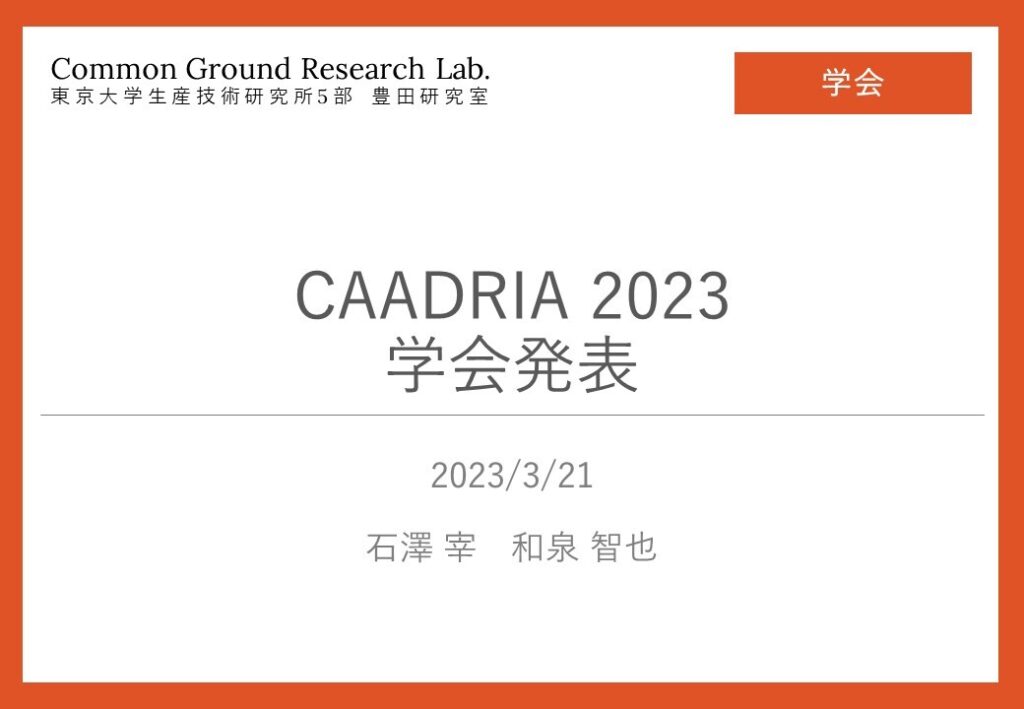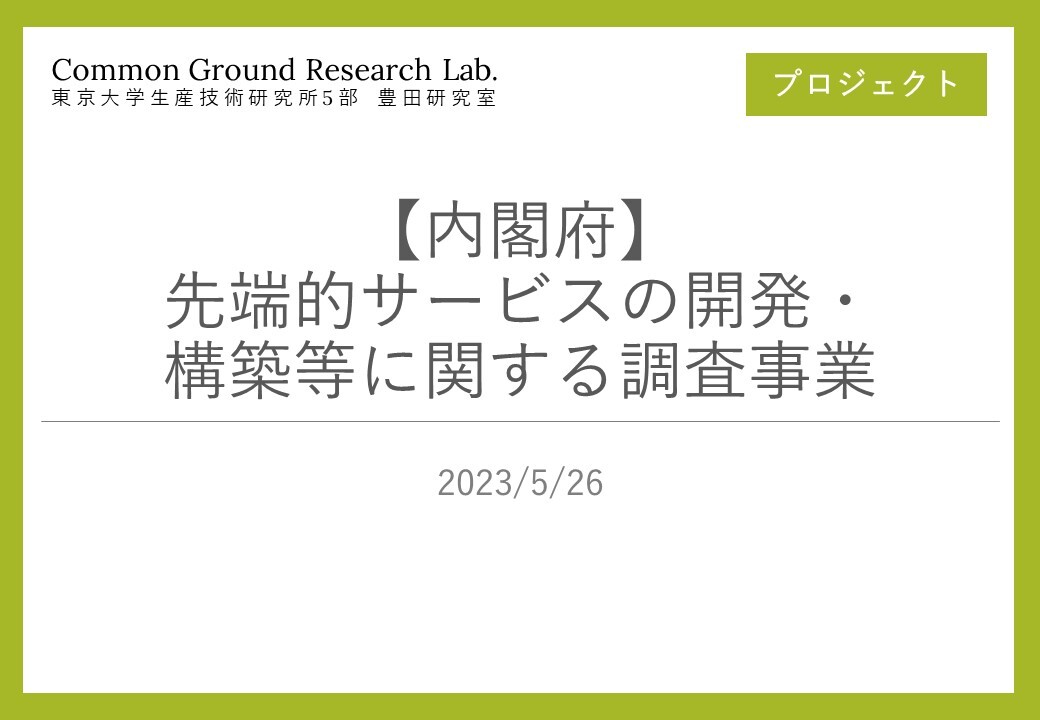研究室からは以下の2題が発表された。

Systematic Review of Organizing The Data Flow of Systems Using Building Information Modeling and Distributed Ledger Technology
Authors: 登壇者 和泉 智也(共著:豊田 啓介
As the digitalization in the architecture, engineering, and construction (AEC) industry has been rapidly progressing, building end users will require more coverage of quality data for their built environment. Despite its obvious need, it is seldom for the building information modeling (BIM) to be distributed for such broad use cases thus far. A potential reason for the situation is the lack of the public repository that can provide the adequate access control for various users. Distributed Ledger Technology (DLT), including blockchain, is one of the promising resolutions for the problem. Numbers of preceding proposals for DLT-based BIM repository systems (BIM-DLT system) have proved the utility to date. Understanding the statistical facts of their configurations will become a significant assistance to determine the plausible data distribution system, and thus, to strengthen the project information life cycle. This article aims to build a representative framework through the integrated literature review (ILR). The review results showed that the system’s data flow was classified into two patterns. The judgment criteria for selecting the pattern of the system are expected to depend on the purpose of system implementation, and the purpose of automation through smart contracts is more important than the oracle problem.
https://doi.org/10.52842/conf.caadria.2023.1.687
Metaverse Expands the Common Data Environment
Authors: 石澤 宰
Building information modeling (BIM) is critical to the industry’s digital transition. Its diffusion is also expected to improve project economics. However, maintaining adequate information in the common data environment (CDE) typically becomes the bottleneck. Conversations still take place outside of the model workflow, easily becoming untraceable. This article proposes the fusion of the BIM and metaverse, which can serve as a CDE (MaCDE). The metaverse workspace hosts the project meetings, presenting the model as the virtual venue. Avatars’ utterances can be automatically recorded, indexed, and tracked. The enhanced traceability of information reduces the burden of dealing with contractual issues and motivates professionals to join, stay, and utilize the model environment. The concept demonstrates that the model can be continuously leveraged regardless of its Level of Development. The increased visibility helps align stakeholder expectations with the model deliverable. The improved coverage and searchability of the archive help recapture the lost revenue, improving the project profitability and the ongoing effort to enhance productivity.

